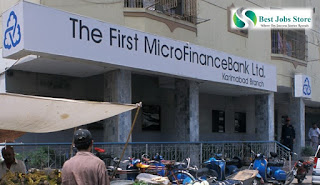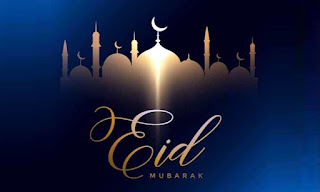Eid al-Adha
Eid al-Adha (Arabic:
عيد الأضحى, romanized: ʿīd al-ʾaḍḥā, lit. 'Feast of the Sacrifice', also
called the "Festival of the Sacrifice", is the second of two Islamic
holidays celebrated worldwide each year (the other being Eid
al-Fitr), and considered the holier of the two. It honors the willingness
of Ibrahim (Abraham) to sacrifice
his son Ismael as an act of obedience to God's
command. But, before Ibrahim could sacrifice his son, God provided a lamb to
sacrifice instead. In commemoration of this intervention, an animal, usually a
sheep, is sacrificed ritually and divided into three parts. One share is given to
the poor and needy, another is kept for home, and the third is given to
relatives.
In the Islamic
lunar calendar, Eid al-Adha falls on the 10th day of Dhu
al-Hijjah, and lasts for four days. In the international (Gregorian) calendar, the dates vary from year
to year shifting approximately 11 days earlier each year.
Other Names
In languages other than Arabic, the
name is often simply translated into the local language, such as Eid Qurban (Persian:
عيد قربان), Qurban Bayrami (Azerbaijani: Qurban Bayramı),
Tafaska tameqrant (Berber languages: Amazigh),
English Feast of the Sacrifice, German Opferfest, Dutch Offerfeest, Romanian
Sărbătoarea Sacrificiului,
and Hungarian Áldozati ünnep. In Spanish it is known
as Fiesta del Cordero
or Fiesta del Borrego
(both meaning "festival of the lamb"). In Kurdish
it is known as (Cejna Qurbanê / جەژنی قوربان).
It is also known as Eid Qurban (عید قربان) in Persian speaking countries
such as Afghanistan
and Iran,
Kurban Bayramı in Turkey,
Qurban Bayramı in Azerbaijan, কোরবানীর ঈদ
in Bangladesh,
as عید الكبير the big Feast in the Maghreb,
as Iduladha, Hari Raya Aidiladha, Hari Raya Haji or Hari
Raya Korban in Brunei,
Indonesia,
Malaysia,
Singapore and the Philippines, as بکرا عید "Goat
Eid" or بڑی عید "Greater Eid" in India and Pakistan,
Bakara Eid in Trinidad and Tobago, as 𞤔𞤓𞥅𞤂𞤁𞤉 𞤁𞤌𞤐𞤑𞤋𞤐 or Juulde Donkin in the Fulfulde
language, as Tabaski or Tobaski in The
Gambia, Guinea,
and Senegal
(most probably borrowed from the Serer
language – and an ancient Serer
religious festival), and as Odún Iléyá by the Yorúbà
people of Nigeria.
The following names are used as other
names of Eid al-Adha:
- عیدالاضحیٰ (transliterations
of the Arabic name) is used in Urdu, Hindi, Assamese, Bengali, Gujarati,
and Austronesian languages such as Malay
and Indonesian.
- العيد الكبير meaning
"Greater Eid" (the "Lesser Eid" being Eid al-Fitr) is
used in Yemen, Syria, and North Africa (Morocco, Algeria, Tunisia, Libya,
and Egypt). Local language translations are used لوی اختر in Pashto, Kashmiri (Baed Eid), Urdu and Hindi (Baṛī Īd), বড় ঈদ
in Bengali, Tamil
(Peru Nāl, "Great Day") and Malayalam
(Bali Perunnal, "Great Day of Sacrifice") as well as Manding varieties in West Africa such as Bambara, Maninka, Jula
etc. (ߛߊߟߌߓߊ Seliba, "Big/great
prayer").
- عید البقرة (eid al-baqara)
meaning "the Feast of Cows (also sheep or goats)" is used in
Egypt, Saudi Arabia, and the Middle East. Although the word بقرة properly
means a cow, it is also semantically extended to mean all livestock,
especially sheep or goats. This extension is used in Hindi and Urdu as a
very similar name ईद-उल-अज़हा (īd-ul-azhā, 'the Feast of goat') is used for the occasion.
- The Feast of Sacrifice is used in Uzbekistan.
- The Hajj Feast is used in Malaysian and Indonesian, in the
Philippines.
- Big Sallah in Nigeria, as it is considered to be holier than
Eid al-Fitr (which is locally known as the "Small Sallah").
"Ram Sallah" is also used, as it refers to the rams that are
being sacrificed on that day.
Etymology
The word عيد (ʿīd) means 'festival',
'celebration', 'feast day', or 'holiday'. It itself is a triliteral
root عيد with associated root meanings of "to go back, to
rescind, to accrue, to be accustomed, habits, to repeat, to be experienced;
appointed time or place, anniversary, feast day." Arthur
Jeffery contests this etymology, and believes the term to have been
borrowed into Arabic from Syriac, or less likely Targumic Aramaic.
The words أضحى (aḍḥā) and قربان (qurbān) are synonymous in meaning 'sacrifice' (animal sacrifice), 'offering' or 'oblation'. The first word comes from the triliteral root ضحى (ḍaḥḥā) with associated meanings of "immolate ; offer up ; sacrifice ; victimize." No occurrence of this root with a meaning related to sacrifice occurs in the Qur'an but in the Hadith literature. Arab Christians use the term to mean the Eucharistic host. The second word derives from the triliteral root قرب (qaraba) with associated meanings of "closeness, proximity... to moderate; kinship...; to hurry; ...to seek, to seek water sources...; scabbard, sheath; small boat; sacrifice." Arthur Jeffery recognizes the same Semitic root, but believes the sense of the term to have entered Arabic through Aramaic. Compare Hebrew korban קָרבן (qorbān).
Origin
One of the main trials of Ibrahim's
life was to face the command of God by sacrificing his beloved son. In Islam,
Ibrahim kept having dreams that he was sacrificing his son Ismael. Ibrahim knew
that this was a command from God and he told his son, as stated in the Quran
"O'son, I keep dreaming that I am slaughtering you", Ismael replied
" Father, do what you are ordered to do." Ibraham prepared to submit
to the will
of God and prepared to slaughter his son as an act of faith and
obedience to God. During this preparation, Shaytaan
(the Devil) tempted Ibraham and his family by trying to dissuade
them from carrying out God's commandment, and Ibraham drove Satan away by throwing
pebbles at him. In commemoration of their rejection of Satan, stones are thrown
at symbolic pillars Stoning of the Devil during
Hajj rites.
Acknowledging that Ibrahim was willing
to sacrifice what is dear to him, God the almighty honoured both Ibrahim and
Ismael. Jibreel (Gabriel) called Ibrahim "O' Ibrahim, you have fulfilled
the revelations." and a Ram from heaven was offered by Jibreel to prophet
Ibrahim to slaughter instead of Ismael. Muslims worldwide celebrate Eid al Adha
to commemorate both the devotion of Ibrahim and the survival of Ismael.
This story is known as the Akedah
in Judaism (Binding of Isaac) and originates in the Torah, the
first book of Moses (Genesis, Ch. 22). The Quran
refers to the Akedah
as follows:
100 "O my Lord! Grant me a
righteous (son)!
101 So We gave him the good news of a boy ready to suffer and forbear.
102 Then, when (the son) reached (the age of) (serious) work with him, he said:
"O my son! I see in vision that I offer thee in sacrifice: Now see what is
thy view!" (The son) said: "O my father! Do as thou art commanded:
thou will find me if Allah so wills one practicing Patience and
Constancy!"
103 So when they had both submitted their wills (to Allah), and he had laid him
prostrate on his forehead (for sacrifice),
104 We called out to him "O Ibraham!
105 "Thou hast already fulfilled the vision!" – thus indeed do
We reward those who do right.
106 For this was obviously a trial–
107 And We ransomed him with a momentous sacrifice:
108 And We left (this blessing) for him among generations (to come) in later
times:
109 "Peace and salutation to Abraham!"
110 Thus indeed do We reward those who do right.
111 For he was one of our believing Servants.
112 And We gave him the good news of Isaac – a prophet – one of the
Righteous.
— Quran, sura 37 (Aṣ-Ṣāffāt), āyāt 100–112
The word "Eid" appears once in Al-Ma'ida, the fifth sura of the Quran, with the meaning "solemn festival".
Purpose of Sacrifice in Eid al-Adha
The purpose of Sacrifice in Eid
al-Adha is not about shedding of blood just to satisfy Allah. It is about
sacrificing something devotees love the most to show their devotion to Allah.
It is also obligatory to share the meat of the sacrificed animal in three
equivalent parts - for family, for relatives and friends, and for poor people.
The celebration has a clear message of devotion, kindness and equality. It is
said that the meat will not reach to Allah, nor will the blood, but what
reaches him is the devotion of devotees.
Eid prayers
Eid
prayer in Pakistan
Devotees offer the Eid al-Adha prayers
at the mosque. The Eid al-Adha prayer is performed any time after the sun
completely rises up to just before the entering of Zuhr
time, on the 10th of Dhu al-Hijjah. In the event of a force
majeure (e.g. natural disaster), the prayer may be delayed to
the 11th of Dhu al-Hijjah and then to the 12th of Dhu al-Hijjah.
Eid prayers must be offered in congregation.
Participation of women in the prayer congregation varies from community to
community. It consists of two rakats (units) with seven takbirs
in the first Raka'ah and five Takbirs in the second Raka'ah. For Shia
Muslims, Salat al-Eid differs from the five daily canonical prayers
in that no adhan
(call to prayer) or iqama (call) is pronounced for the two Eid
prayers. The salat
(prayer) is then followed by the khutbah, or sermon, by the Imam.
At the conclusion of the prayers and
sermon, Muslims embrace and exchange greetings with one another (Eid
Mubarak), give gifts and visit one another. Many Muslims also
take this opportunity to invite their friends, neighbours, co-workers and
classmates to their Eid festivities to better acquaint them about Islam and
Muslim culture.
The owner is cleaning his cow before taking it to the cattle market for Eid-Ul-Adha. Boshila, Dhaka, Bangladesh.
Traditions and practices
Cookies of Eid (ma'amoul)
During Eid al-Adha, distributing meat
amongst the people, chanting the takbir
out loud before the Eid prayers on the first day and after prayers throughout
the three days of Eid, are considered essential parts of this important Islamic
festival.
The takbir
consists of:
|
الله أكبر الله أكبر |
Allāhu akbar, allāhu akbar |
One
important tradition for Eid al-Adha is sacrificing an animal
Men, women, and children are expected
to dress in their finest clothing to perform Eid prayer in a large congregation
in an open waqf
("stopping") field called Eidgah or mosque. Affluent Muslims who can
afford it sacrifice their best halal domestic animals (usually a cow, but can also
be a camel, goat, sheep, or ram depending on the region) as a symbol of
Abraham's willingness to sacrifice his only son. The sacrificed animals, called
aḍḥiya (Arabic:
أضحية),
known also by the Perso-Arabic term qurbāni, have to meet certain age
and quality standards or else the animal is considered an unacceptable
sacrifice. In Pakistan alone nearly ten million animals are slaughtered on Eid
days costing over US$2.0 billion.
The meat from the sacrificed animal is
preferred to be divided into three parts. The family retains one-third of the
share; another third is given to relatives, friends, and neighbors; and the
remaining third is given to the poor and needy.
Muslims wear their new or best clothes. Women cook special sweets, including ma'amoul (filled shortbread cookies). They gather with family and friends.
Eid al-Adha in the Gregorian calendar
See
also: Islamic calendar
While Eid al-Adha is always on the
same day of the Islamic calendar, the date on the Gregorian calendar varies
from year to year since the Islamic calendar is a lunar calendar and the
Gregorian calendar is a solar calendar. The lunar
calendar is approximately eleven days shorter than the solar calendar. Each
year, Eid al-Adha (like other Islamic holidays) falls on one of about two to
four different Gregorian dates in different parts of the world, because the
boundary of crescent visibility is different from the International Date Line.
The following list shows the official
dates of Eid al-Adha for Saudi Arabia as announced by the Supreme Judicial Council.
Future dates are estimated according to the Umm al-Qura calendar of Saudi
Arabia. The Umm al-Qura is just a guide for planning purposes and not the
absolute determinant or fixer of dates. Confirmations of actual dates by moon
sighting are applied on the 29th day of the lunar month prior to Dhu al-Hijjah
to announce the specific dates for both Hajj rituals and the subsequent Eid
festival. The three days after the listed date are also part of the festival.
The time before the listed date the pilgrims visit the Mount Arafat and descend
from it after sunrise of the listed day.
In many countries, the start of any lunar
Hijri month varies based on the observation of new moon by local
religious authorities, so the exact day of celebration varies by locality.
|
Islamic year |
Gregorian date |
|
1438 |
1
September 2017 |
|
1439 |
22
August 2018 |
|
1440 |
11
August 2019 |
|
1441 |
31
July 2020 (calculated) |
|
1442 |
20
July 2021 (calculated) |









Comments
Post a Comment